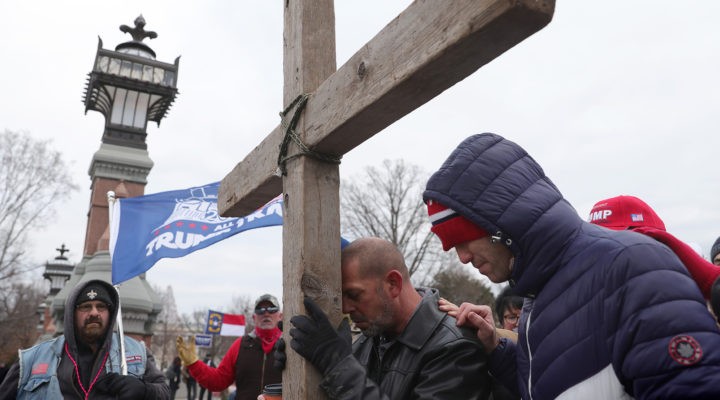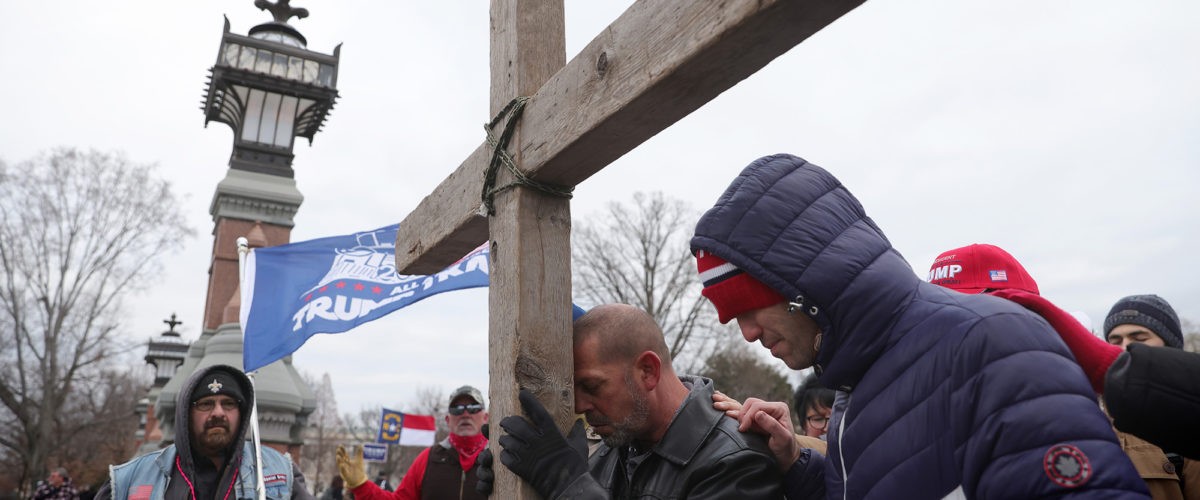Americans shouldn’t judge the Taliban too harshly for its fierce opposition to religious pluralism in Afghanistan when the United States is host to the growing and violent Christian nationalist movement that inspired the Jan. 6 insurrection at the U.S. Capitol, Muslim American activist and attorney Rahmah Abdulaleem said.
“Aren’t we doing a version of that here? We’re so focused on those people. Those heathens. They’re just watching what we did in January and saying, ‘Hey, we’re taking it to a different level.’ But they are watching us,” Abdulaleem said during “Reframing Religious Freedom: Confronting Christian Nationalism,” a recent session in a multi-part, online discussion hosted by the Reimagine Religious Freedom Mobile Institute.
In addition to Abdulaleem, the panel included Charles Watson Jr., director of education at Baptist Joint Committee for Religious Liberty, and Corey D.B. Walker, author, Wake Forest University humanities professor and president of the Center for Faith, Justice and Reconciliation in Richmond, Va. Their discussion was moderated by Sabrina Dent, senior faith advisor at Americans United for Separation of Church and State.
Undermining other faiths
Like the other religiously motivated authoritarian movements, American Christian nationalists seek to undermine the validity and presence of other faith groups and even of Christian denominations they deem politically and theologically undesirable, said Abdulaleem, executive director of Karamah: Muslim Women Lawyers for Human Rights.
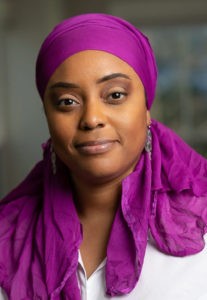
Rahmah Abdulaleem
“Christian nationalism is saying, ‘If you are not this kind of Christian, you are not good enough. If you don’t believe everything I say you should believe, you’re on the outside.’”
Pluralism, on the other hand, is supported in the Establishment and Free Exercise clauses of the First Amendment and at its heart promotes an acceptance and embrace of others’ faith traditions and, ultimately, the status of human beings created by God, she said.
“With white Christian nationalism, humanity is the last thing you see. You focus on race. You focus on religion. You focus on what part of the country they’re from. … When I think of religious pluralism, I think of the common humanity we have.”
Religious liberty hijacked
The white supremacist-fueled ideology also has hijacked the concept of religious liberty, Abdulaleem said. “We are getting to where we can only talk about religious freedom if we talk about it through a Christian nationalism lens. And we have to fight against that.”
“We are getting to where we can only talk about religious freedom if we talk about it through a Christian nationalism lens. And we have to fight against that.”
Americans of all faiths and of none must join in the struggle to oppose the nationalists’ attempts to transform religious freedom into a tactic to eliminate reproductive rights, immigration and vaccines, Walker said.
“What we are witnessing right now is the mobilization of religious hatred in order to colonize political power, and that political power is seeking to exclude those who don’t identify with those ascendant norms that are seeking an authoritarian ethos in the United States.”
Christian nationalism is redefining the meaning of religious freedom in its campaign to pit belief systems against each other, he said.
“That mitigates our democratic ethos, it mitigates and marginalizes various citizens who don’t adhere to those ultimate claims and commitments, and more importantly it erodes the very fabric of solidarity that’s needed in a moment of global protest, global pandemic and the need to re-found public policy to ensure the lives and life chances of so many individuals … can live up to their aspirations and to affirm the worth value and dignity of all individuals.”
The Lost Cause continues
These impulses should come as no surprise in a nation where Christian nationalism appeared in the form of the post-Civil War Lost Cause nostalgia in the South, in opposition to the New Deal polices of FDR and in the battles around the integration of schools, the panelists said.
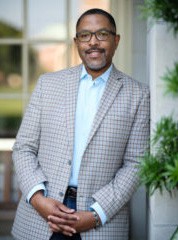
Corey D. B. Walker
“If we don’t reframe religious freedom, if we don’t re-imagine it, the forces of Christian nationalism that are intent on dividing, that are intent on denying the integrity of every human being, that are intent on destroying the planet through a vicious and virulent assault on the environment, what we can actually witness is the further deterioration of American democracy as well as the further deterioration of the human condition and the global condition,” Walker said.
The original meaning of religious freedom already has been all but redefined, Abdulaleem said.
“It’s a dog whistle to certain parts of the country to say, ‘OK, we no longer can discriminate based on race but if we say it’s religious, we can do whatever we want,’” she said. “Far too many people think religious freedom means I can say whatever I want and do whatever I want as long as I have a religious base. That is not what religious freedom is. But the Christian nationalists have taken that baton and run with it.”
“Far too many people think religious freedom means I can say whatever I want and do whatever I want as long as I have a religious base. That is not what religious freedom is.”
A shield or a sword?
Rather than using it as a weapon against political and religious opponents, the value of religious liberty should serve as a shield of protection and as a tool for promoting harmony in society, she said. “Religious freedom is really the respect for religion, various religions, that goes back to the Establishment clause and the Free Exercise clause.”
But using religion to build bridges would be relatively uncommon in American culture, Watson said. He cited the forced movement of Native Americans and the capture and use of slaves as practices rationalized as God’s will by white Americans.
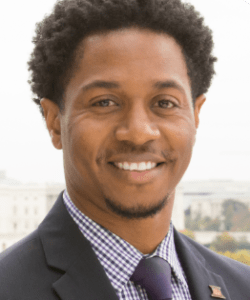
Charles Watson Jr.
“In this nation, Christianity has always been used as a sword. When has it not been used as a sword?”
And that practice has continued in modern history, including in the March 2021 killing of eight women of Asian descent in Georgia, he said. “We’ve seen what happens with this. We don’t have to talk about slavery or the Holocaust. We can look at Mother Emmanuel AME Church in Charleston, S.C., to see what Christian nationalism does. If you were to look at Dylann Roof’s manifesto, it was filled with Christian nationalism.”
Abdulaleem urged Christians concerned about Christian nationalism not to take the movement lightly. “Some Christians are not on the safe side. They’re already coming for you guys.”
That’s why discussion and action must continue, Watson added. “We have to talk about these things and not be afraid to talk about these things.”
Related articles:
If you’re paying attention to Christian nationalism, you won’t be shocked by Michael Flynn’s call for ‘one religion under God’ | Opinion by Amanda Tyler
Michael Flynn says America needs ‘one religion under God’
Interdenominational panel warns of extreme danger of Christian nationalism
Schaeffer: White nationalist evangelicals believe in Trump like an article of faith

